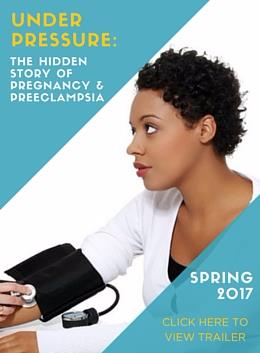Why do some women get it and others don’t?
BY HILARY SHEINBAUM August 21, 2017

Contrary to its name, morning sickness is not reserved for the hours between midnight and noon. That’s right, when you’re pregnant, you might be nauseated in the evening or multiple times throughout the day (*insert unamused emoji here*).
According to the American Pregnancy Association, more than 50 percent of women are affected by morning sickness. But while many women battle vomiting (or feeling like they might) during pregnancy, others don’t experience the impulse to heave—at all.
Top of Form
“Every woman is different, as is each pregnancy different,” says Kecia Gaither, M.D., a double-board certified physician in ob-gyn and fetal maternal medicine. “One may have morning sickness with the first pregnancy but not experience anything with subsequent pregnancies.”
Why the discrepancy? Experts still aren’t totally sure of the exact cause of morning sickness. That said, there are some factors that might contribute to the likeliness of nausea. “Women who have had morning sickness in prior pregnancy, multiple gestation pregnancy, [or] an abnormal pregnancy called a molar pregnancy [when a fertilized egg develops into a growth instead of an embryo], are all more likely to have morning sickness,” says Sarah Yamaguchi, M.D., ob-gyn at Good Samaritan Hospital in Los Angeles, CA. “It does also seem like women who have had a first-degree family member with morning sickness are more likely to have it.”
Hormones may also have an influence. “There are rapid rises of hormones: estrogen, progestins, and particularly the ‘pregnancy hormone’, human chorionic gonadotropin,” says Gaither. “It’s hypothesized that some women are more sensitive to the rapid rise of hormones than others. There have been studies denoting that morning sickness may reflect an evolutionary protective mechanism—protecting the fetus against certain foods that the mother ingests during the most vulnerable point in gestation.”
Find out what every woman should know about pregnancy tests:
For women who do experience sickness, it tends to begin around the fifth or sixth weeks of pregnancy, peaks during the ninth week, and then eases up from here, says Yamaguchi. Though these are general timelines, once again, everyone is different and severity is unpredictable as well.
While there are no tactics to fully prevent morning sickness, says Sherry Ross, M.D., ob-gyn and Women’s Health Expert at Providence Saint John’s Health Center in Santa Monica, CA, there are methods to combat feeling queasy. “The best way to avoid nausea during pregnancy is to eat frequently and often. Don’t wait to feel hungry to eat, and drink cold, clear and carbonated beverages in small amounts, as often as possible,” says Ross. She recommends foods that are high in carbs, and low in fat (such as the BRAT diet—bananas, rice, applesauce, and toast). “Saltine crackers are also quite helpful,” she adds.
Aside from diet changes, Ross also suggests medication, such as Diclegis, to calm symptoms. “It’s basically a combination of Benadryl and Vitamin B6,” she says. “Zofran has been used in the past but is not as safe to take [during] pregnancy.” Or, for a natural remedy, Ross recommends taking 25 milligrams of Vitamin B6 three times a day, consuming ginger (ginger root boiled in water, ginger root tea, lozenges, ginger flavored chewing gum, etc.), and participating in acupuncture or acupressure.
Although throwing up for days isn’t physically the best experience, it may be a positive indicator of the unborn child’s good health in the long run. “What is interesting is women with mild nausea and vomiting during pregnancy experience fewer miscarriages and stillbirths than women without these symptoms,” says Ross. “When a woman is really nauseous and has occasional vomiting, I know she is probably carrying a healthy pregnancy.”
But if regurgitation isn’t a regular occurrence, that’s okay too. Yamaguchi says: “Lack of morning sickness should not worry women that they have an unhealthy pregnancy.”






